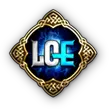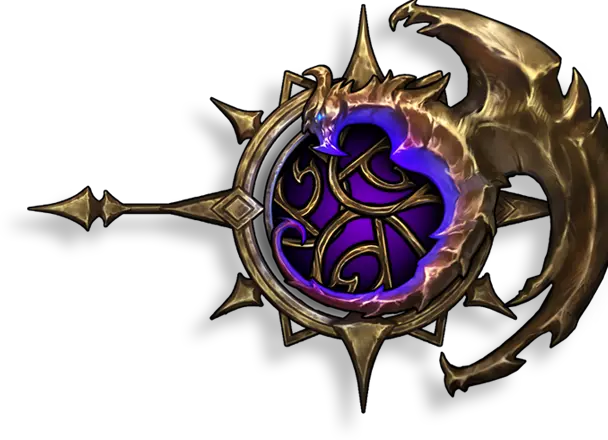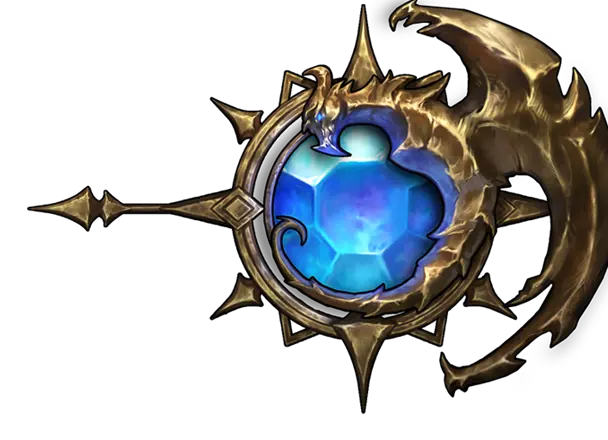Legends of Elysium vs Flesh and Blood
Flesh and Blood TCG: Tactical Analysis
Tactic in Flesh and Blood TCG
In Flesh and Blood TCG, tactics revolve around dynamic hand management and efficient resource utilisation during combat. Players must make split-second decisions to defend against attacks or to launch their own offensive manoeuvres. Each card can serve multiple purposes—attack, defend, or generate resources—adding a tactical layer to every decision.
Key Tactical Features:
- Resource Management: Cards can be played for their effects or pitched to generate resources. Balancing these choices is essential for maximising efficiency in each turn.
- Blocking and Defence Reactions: Players must anticipate opponents’ moves and strategically use their cards to block damage. Defence reactions can turn the tide of a battle.
- Attack Combos: Some heroes rely on chaining multiple attack cards to unleash powerful combo effects, rewarding precise sequencing and tactical foresight.
Strategy in Flesh and Blood TCG
Long-term strategy in Flesh and Blood TCG is deeply rooted in hero selection and deck construction. Players must build a deck that complements their hero’s unique abilities while considering the game’s evolving meta and potential matchups.
Key Strategic Elements:
- Hero Specialisation: Each hero belongs to a specific class (e.g., Warrior, Ninja, Ranger) and comes with unique abilities that shape their playstyle. Choosing the right hero for your preferred strategy is critical.
- Deck Customisation: Decks are carefully constructed to include specific attack actions, defence reactions, and equipment. Players must balance offensive and defensive capabilities to adapt to different opponents.
- Tempo Management: Knowing when to push for aggressive plays and when to defend is key to maintaining control of the game’s tempo and dictating the flow of combat.
Collectible Aspect in Flesh and Blood TCG
Flesh and Blood places a strong emphasis on the collectible nature of its cards, with beautifully designed artwork and different card rarities, including sought-after foils and legendary cards.
Key Collectible Features:
- Card Rarities: Cards come in various rarities, from common to fabled. Collecting rare cards can significantly increase the value of a player’s collection.
- Foil Variants: Many cards have foil versions that are more visually striking and valuable. These foils are prized by collectors.
- Set Releases: Regular expansion sets introduce new heroes, mechanics, and cards, keeping the collectible aspect fresh and engaging.
Trading Aspects in Flesh and Blood TCG
The game’s robust trading community and secondary market make Flesh and Blood highly appealing for players looking to invest in card trading and collection building.
Key Trading Features:
- Secondary Market Value: Some rare cards, especially first edition prints, can fetch significant prices on the secondary market, making trading a lucrative aspect for collectors and investors.
- Card Economy: The game’s card economy is driven by the scarcity of high-value cards and their utility in competitive play.
- Community-Driven Trades: Players actively engage in trading through local game stores, online platforms, and events, creating a vibrant trading culture.
Gameplay Mechanics in Flesh and Blood TCG
The gameplay mechanics in Flesh and Blood are designed to provide an immersive, skill-based experience, focusing on the interaction between players and the strategic depth of each encounter.
Unique Gameplay Mechanics:
- Hero-Centric Gameplay: Players take on the role of a specific hero with unique abilities and health. The hero’s equipment and cards form the basis of their strategy.
- Pitch System: Cards can be pitched for resources, creating a unique economy system that forces players to think carefully about how to manage their hand each turn.
- Action Point System: Players have a limited number of action points each turn, which must be used to attack, defend, and play cards. This system adds a layer of decision-making and prioritisation.
- Equipment and Armour: Each hero starts with a set of equipment that provides both offensive and defensive benefits, allowing for unique customisation and strategic depth.
What Sets Flesh and Blood TCG Apart
Flesh and Blood TCG stands out in the crowded TCG market by focusing on in-person gameplay, rich strategic depth, and a strong emphasis on player skill.
- In-Person Play Focus: Unlike many modern TCGs that lean heavily on digital platforms, Flesh and Blood was designed to be played face-to-face, fostering community engagement through local events and tournaments.
- Hero-Based Gameplay: The focus on hero specialisation and unique abilities gives players a sense of identity and immersion in the game world.
- Pitch and Resource System: The innovative pitch system adds a layer of strategic complexity, requiring players to carefully manage their cards for both immediate and future needs.
- Premium Card Quality: The cards are printed with high-quality materials and feature stunning artwork, making them desirable collectibles for players and enthusiasts alike.
In conclusion, Flesh and Blood TCG delivers an experience that combines tactical combat, strategic planning, and a deep collectible and trading ecosystem. Its focus on face-to-face play and innovative mechanics makes it a standout choice for TCG enthusiasts seeking a fresh and engaging challenge.
Legends of Elysium compared to Flesh and Blood TCG – Gameplay Mechanics
The gameplay mechanics of Legends of Elysium diverge from the traditional card-battling style of Flesh and Blood TCG by integrating a dynamic hex-based board into the core of its combat system. While Flesh and Blood relies heavily on hand management and pitch-based resource economy to fuel tactical plays, Legends of Elysium requires players to manage both their cards and the spatial elements of the board. The hexagonal terrain introduces a strategic layer where unit positioning, land control, and terrain adaptation play pivotal roles. Each card in Legends of Elysium has specific land requirements, compelling players to terraform the board as part of their long-term planning. Additionally, combat in LOE is not limited to direct attacks between heroes, but also incorporates board presence, where controlling special fields can provide critical advantages. This fusion of board game tactics with TCG elements elevates the gameplay, transforming it into a battle of both minds and map mastery, whereas Flesh and Blood offers a more streamlined, head-to-head experience focused on sequencing attack chains and optimising hero abilities.
Legends of Elysium like Flesh and Blood TCG – Similarities
Both Legends of Elysium and Flesh and Blood TCG share a foundation of tactical depth and strategic deck-building that appeals to seasoned TCG enthusiasts seeking meaningful gameplay experiences. In both games, success hinges on the player’s ability to master card synergies, resource management, and situational adaptability. The heroes in Flesh and Blood mirror the role of avatars in Legends of Elysium, each offering unique abilities that dictate the player’s overarching strategy. Furthermore, both games reward foresight, where managing hand size, timing powerful plays, and anticipating the opponent’s moves are key to victory. Card rarity and collectibility play a crucial role in both titles, ensuring that every pack opened holds the promise of uncovering a powerful or rare card to enhance a player’s collection. Additionally, the combat in both games is grounded in calculated decision-making rather than luck, allowing players to feel that each victory is earned through skill and mastery. This shared emphasis on tactical combat, hero specialisation, and collectible progression fosters a sense of ownership and achievement that resonates deeply with dedicated players.
Legends of Elysium vs Flesh and Blood TCG – Key Differences
While both Legends of Elysium and Flesh and Blood TCG emphasise tactical depth and strategic mastery, their core gameplay experiences diverge significantly. The most striking difference lies in LoE’s unique hex-based board system, where players must terraform land and manage spatial positioning in addition to their card plays. In contrast, Flesh and Blood follows a more traditional card-battling format, focusing on direct hero-versus-hero combat. Additionally, Legends of Elysium integrates a play-and-earn model through blockchain technology, allowing players to truly own their digital assets, while Flesh and Blood relies solely on physical card ownership and trading in real-world markets. Furthermore, LoE’s phygital approach bridges the gap between digital and physical gameplay, offering in-game bonuses tied to real-world collectibles. Another key distinction is the role of the board itself: in LoE, controlling strategic hexes provides unique game-changing advantages, while Flesh and Blood focuses more on managing action points and equipment for immediate tactical benefits. These differences create a dynamic contrast between the two titles, with Legends of Elysium offering a hybrid experience that blends TCG and board game elements, pushing players to master both card synergies and battlefield control.
Tactic and Strategy in Legends of Elysium
In Legends of Elysium, mastering the art of tactics and strategy is the essence of triumph. The game’s tactical depth lies in its unique fusion of card mechanics and hex-based board control, where every move has lasting consequences. Players must adapt to evolving battlefields by terraforming terrain, deploying units strategically, and utilising hero abilities to shift the tide in their favour. Tactical decisions are made with every card played—should you strengthen your defences, launch a surprise attack, or secure control of special hexes that offer valuable bonuses? The strategic layer goes deeper, as victory requires long-term planning. Building a synergistic deck that aligns with the hero’s strengths and the map’s configuration is key. Unlike traditional TCGs that focus solely on card interactions, LoE demands foresight in positioning and movement across the board. Players must carefully manage resources, balancing between aggressive plays and defensive fortifications, while also considering land control to unlock powerful card effects. It’s a test of wit, endurance, and adaptability, where both tactical precision and strategic vision are needed to emerge victorious.
Legends of Elysium as Alternative to Flesh and Blood TCG
For players seeking a fresh, multifaceted experience, Legends of Elysium stands as a compelling alternative to Flesh and Blood TCG, offering not just card battles but a hybrid gameplay that merges TCG mechanics with tactical board control. While Flesh and Blood champions fast-paced, hero-driven duels, LoE elevates the battlefield with its hex-based terrain system, demanding mastery of both spatial strategy and deck-building finesse. Where LoE truly shines is in its play-and-earn ecosystem, allowing players to take ownership of their digital assets, trade them freely, and earn rewards through skill and dedication. This blockchain-backed system, paired with phygital collectibles, offers a modern twist that bridges the gap between traditional card gaming and digital innovation. For players who relish deep tactical challenges and wish to explore a living, evolving world, Legends of Elysium provides a richer, more expansive journey, where every battle shapes the fate of Elysium. It’s a game built for those who wish to be more than players—they become heroes shaping the very world they engage with.
Conclusion
Legends of Elysium invites you to step into a world where every battle shapes the future of an ever-evolving realm. This is not merely a card game; it is a challenge for the bold, a test of wit and strategic prowess that calls to those who crave mastery. With its unique fusion of tactical board control and classic TCG mechanics, LoE pushes players to think beyond the cards in their hand and consider the very terrain they stand on. The rich fantasy lore woven into the game brings Elysium to life, allowing players to forge their own legacies through conquest, diplomacy, and cunning manoeuvres. Whether you are a seasoned tactician seeking a fresh battlefield or a lore enthusiast yearning to explore a living world, LoE delivers an unparalleled experience. Are you ready to claim your place among the legends? The fate of Elysium awaits—step forth and let your strategy be the key to victory.
| Feature | Legends of Elysium | Flesh and Blood TCG |
|---|---|---|
| Gameplay Mechanics | Combines traditional TCG with hex-based tactical board control. Players must manage terrain and spatial positioning in addition to card plays. | Hero-centric gameplay with pitch-based resource management and direct hero-versus-hero combat. Focuses on hand management and action points. |
| Strategy Depth | Requires long-term planning with deck-building, land control, and unit positioning. Success depends on managing both cards and the battlefield. | Relies heavily on hero selection and deck customisation. Players must adapt to evolving meta and optimise their resource usage for effective plays. |
| Tactical Elements | Introduces terrain control as a core mechanic. Players must terraform the hex board to unlock powerful effects and gain battlefield advantages. | Focuses on chaining attack combos and efficient blocking through defence reactions. Every card serves multiple purposes: attack, defence, or resources. |
| Collectible Aspects | Includes digital assets with blockchain integration. Players own their cards and can trade them on digital marketplaces. Also offers phygital collectibles. | Primarily focuses on physical card collecting with various rarities and foils. The secondary market for rare cards is robust and community-driven. |
| Trading Ecosystem | Utilises a play-and-earn model with NFT integration. Cards can be traded or staked for rewards in a secure, blockchain-backed marketplace. | Trading happens through physical card exchanges and community markets. High-value cards, especially first editions, hold significant market value. |
| Immersive Experience | Offers deep fantasy lore and a living world in Elysium. Players can engage with quests, unlock hero stories, and influence the evolving narrative. | Focuses on immersive in-person gameplay with a strong emphasis on competitive play and local tournaments. Hero stories enhance player immersion. |
| Unique Selling Point | Hybrid gameplay that merges TCG and tactical board game elements with blockchain-based ownership and rewards. | Emphasises face-to-face gameplay with a focus on player skill, hero specialisation, and premium card quality. |







